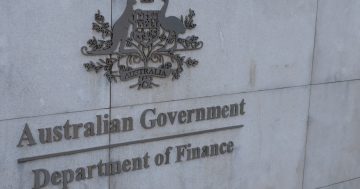
Whistleblowers from within the firm and Defence spoke of a ‘cosy relationship’ between the government and KPMG. Photo: LinkedIn.
Another consulting giant has been thrust into damage control over allegations it has betrayed the Federal Government and ripped off Australian taxpayers.
Big four accountancy firm KPMG is accused of massively inflating bills and charging for work never done in its lucrative contracts with the Department of Defence.
An ABC Four Corners investigation has cited a whistleblower from inside the firm and another from Defence who both declare KPMG to have had free rein in the department over the past decade while raking in almost $2 billion in government ‘work’.
The whistleblowers talk of a ‘cosy relationship’ between the government and KPMG, ‘little scrutiny’ and a ‘toxic culture’.
One said KPMG staff could do whatever they wanted inside Defence, even to the point of overriding senior departmental officials.
The term ‘significant influence’ was used.
The whistleblower who worked at Defence told Four Corners in a statutory declaration that a string of financial errors pouring money into KPMG’s profits was discovered, leading to the firm promising to reduce its fees.
But a retrospective audit by the whistleblower found even earlier invoices from the consultancy were wrong, with some being grossly overinflated.
“We discovered that every KPMG invoice reviewed was incorrect,” they said.
“Defence had been consistently overcharged … (KPMG) wasted a significant amount of public funds, enabled by Defence personnel who had been complicit in blindly awarding multiple contact extensions to KPMG … with little or no scrutiny.”
Allegations include KPMG charging Defence for a consultant who never worked on the project being billed for.
And it also invoiced the department for work never completed and in some cases not even started.
Most KPMG consultants working in Defence were former Defence Force members, the whistleblowers said, making it easy for them to exert control over their departmental colleagues.
Defence has now introduced a new moratorium on entering into contracts with personnel who have left the department’s employ within the past 12 months.
It has long been the case that someone could leave Defence’s employ and walk out the door in uniform on a Friday and be back in the building the following Monday dressed in a suit as a consultant earning substantially more money and with far fewer demands on work/life balance.
In the Four Corners investigation, the Defence whistleblower said they were forced to leave the department after providing documentation on the rorting and having it dismissed by the department after a 2016 investigation.
The problem appears to have continued unabated.
The investigation explores the consultancy term’ land and expand’, in which a firm wins a contract (lands it) and then starts charging for more work (expands).
In KPMG’s case, according to the whistleblowers, much of the ‘expanding’ was done by charging for work already covered in existing contracts with Defence.
One example given involved an extra $1 million being charged for a single seven-month project that was actually work included in another invoice.
Another example discussed how close relationships secured KPMG a $14 million logistics project despite it being the highest bidder for the job – and then charged another $4 million in contract extensions once it got the work.
In a statement, KPMG has refuted the allegations, saying the program’s claims are wrong.
Labor senator Deborah O’Neil, who chairs a parliamentary investigation into consultants, said the whole culture of the big four consultancy firms was one of “abuse of privilege and power” but no one wanted to call it that.
“It’s about getting very, very close to government, finding out what’s going on using the contacts, and then growing the business,” Senator O’Neill told the ABC.
“The whole business model of these companies is ‘billable hours’. The longer they stay there, the less efficiently they do the job.”
This week, the government announced plans to seriously crack down on consultancy firms that help multinational clients to avoid paying tax – in light of the PwC breach of trust scandal.
But the measures do not address issues of overbilling government departments such as that which KPMG now stands accused of doing.





















